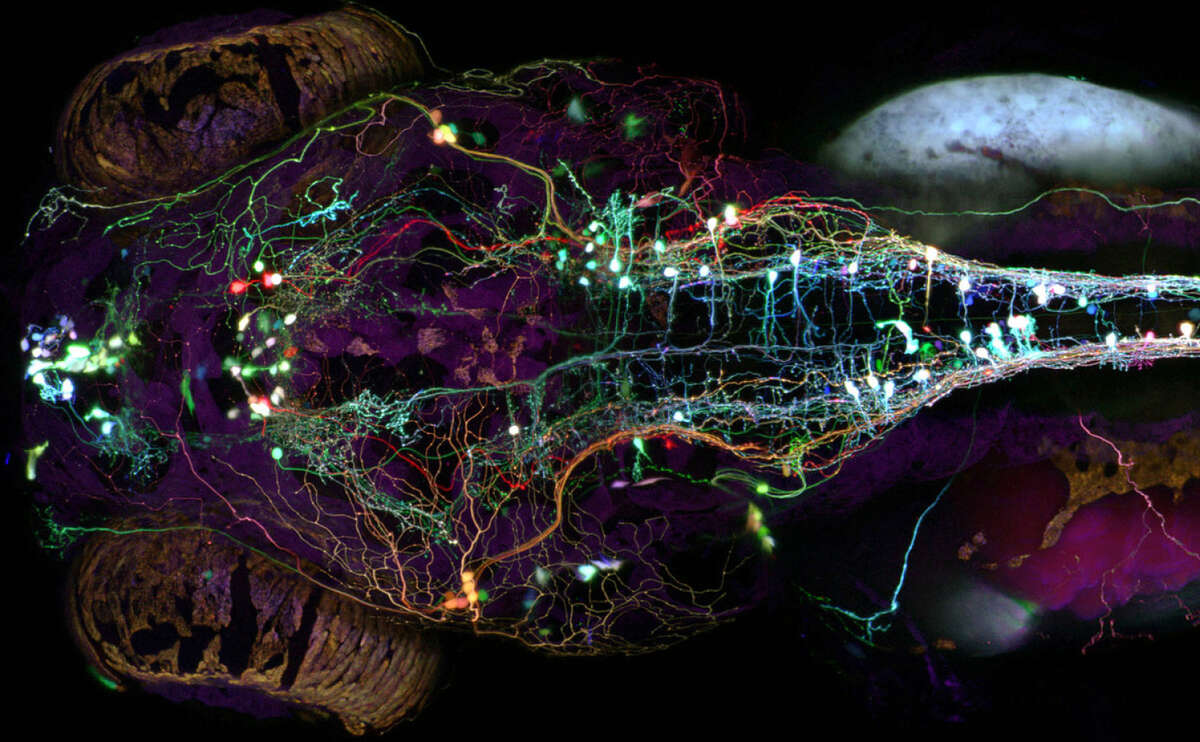Main Content
Vertebrate Development and Behavior
We study the mechanisms underlying embryonic development and the regulation of sleep in vertebrates.
Although scientific knowledge has advanced enormously in the last thirty years, we still only superficially understand how a single fertilized egg cell develops to form a complex living organism and how the brain regulates complex behaviors. To address these questions, we study embryogenesis and the regulation of sleep in vertebrates.
Embryonic development
During development, cells acquire specialized fates and migrate to specific positions to form the embryo and generate functional organs. Our goal is to understand the molecular and cellular mechanisms underlying this process. How do signals move through fields of cells and elicit concentration dependent effects? How do cells differentiate into specialized cell types? How do cells arrive at the right place at the right time? And how can embryogenesis be both robust and flexible? To address these questions, we use genetic, genomic, biophysical and in vivo imaging approaches in zebrafish.
Most recently, we have developed single-cell technologies to reconstruct the lineage and specification trajectories of thousands of cells. We are applying these methods to construct lineage trees that capture the major decisions made by cells as they differentiate, with the long-term goal of understanding the statistics of development.
Sleep and Wakefulness
We spend a third of our life asleep but the mechanisms that control sleep and waking states remain largely elusive. We seek to identify molecules and neurons that regulate sleep and the neuropeptides that promote sleep and wakefulness. What are the neurons that detect sleep deprivation and regulate recovery sleep? What is the role of genes that have been implicated in human sleep disorders? To address these questions, we use genetic, genomic, and imaging approaches in the fish and mouse.





